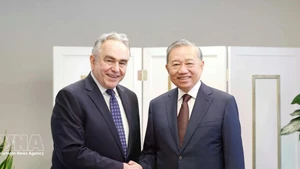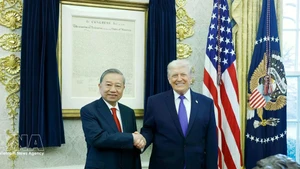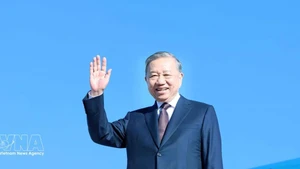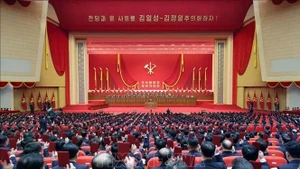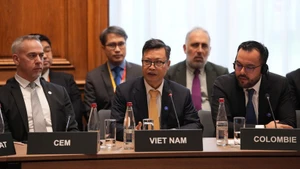Party chief Trong congratulated Putin on his re-election, stressing that the high number of votes reflected the Russian people’s trust in his leadership. He outlined Vietnam's development goals, which include becoming a developing country with modern industry and upper-middle income by 2030, and a developed country with high income by 2045.
He expressed Vietnam’s gratitude for the support provided by the former Soviet Union and Russia nowadays, during the past struggle for national independence and reunification, and ongoing national building and safeguarding. He reiterated that Vietnam treasures its traditional relationship and comprehensive strategic partnership with Russia, considering it a top priority in foreign policy.
Vietnam supports Russia's active role in the international community and its "Look East" policy, believing that a peaceful, independent, strong Vietnam with growing prestige aligns with Russia's long-term interests in the Asia-Pacific and the world, he said.
The host expressed his hope that Putin and Russia would continue to support maintaining peace, stability, security, and freedom of navigation and overflight in the East Sea/South China Sea. He emphasised the importance of respecting Vietnam's legitimate rights and interests and the peaceful settlement of disputes in accordance with international law, including the 1982 United Nations Convention on the Law of the Sea (UNCLOS), the implementation of the Declaration on the Conduct of Parties in the East Sea (DOC), toward reaching a substantive and effective Code of Conduct in the East Sea (COC).
About the Ukraine situation, he underlined Vietnam’s expectation for an early dialogue and cessation of hostilities, resume negotiations to achieve a peaceful resolution in accordance with international law, ensuring legitimate interests of all parties involved.
Vietnam is ready to contribute actively to promoting dialogue and negotiation in this direction, he said.
He talked about Vietnam’s foreign policy of independence, self-reliance, diversification and multilateralisation of external ties, including the strengthening of relations with neighbouring countries, and enhancing and deepening bilateral cooperation with strategic partners, comprehensive partners and other important partners. He also reiterated Vietnam's adherence to the "four nos" defence policy.
Putin, in response, described the comprehensive strategic partnership with Vietnam as a priority in Russia's foreign policy in the Asia-Pacific. He expressed confidence that his visit would generate new momentum in the bilateral relationship.
He emphasised the need to resolve global and regional issues in line with international law and the United Nations Charter, and the support to the peaceful settlement of disputes, including those in the East Sea. He also mentioned Russia's stance on the Ukraine conflict.
Both leaders agreed to raise mutual understanding and trust by facilitating high-level visits and exchanges through Party, State, and parliamentary channels. They committed to developing economic-trade-investment, sci-tech and national defence-security cooperation as well as address specific challenges and issues in accordance with international law and specific conditions in each country.
In the energy and oil sectors, they pledged to create favourable conditions for their companies to carry out existing projects and expand new ones. They also promised to boost collaboration in agriculture, education, culture, tourism, and people-to-people and locality-to-locality exchanges.
They acknowledged the significant contributions of the Vietnamese community in Russia, considering them a vital bridge between the two nations. Trong proposed that Russia continue to support this community to strengthen traditional ties.
On the occasion, Vietnam and Russia issued a joint statement on further deepening their comprehensive strategic partnership, building on the achievements of the past three decades.
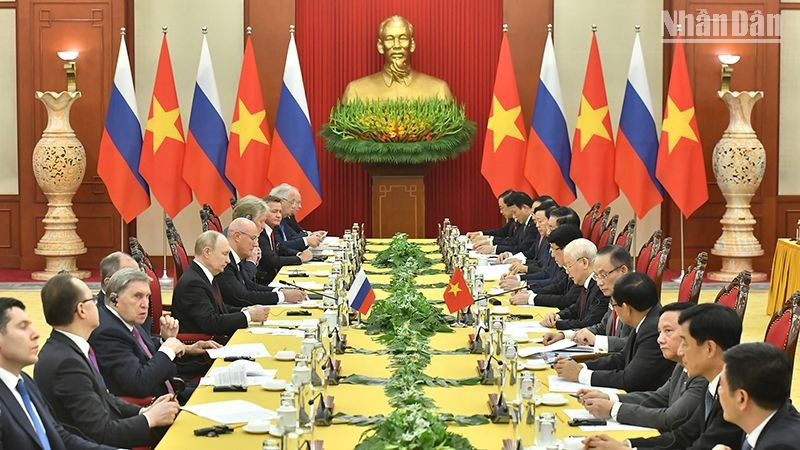

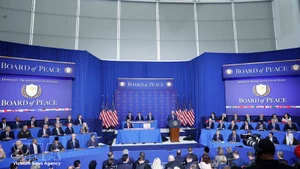
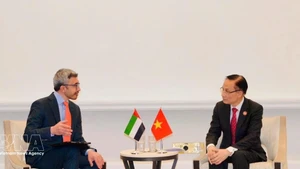
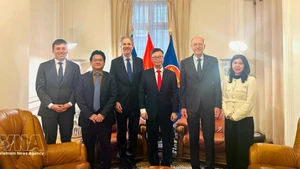
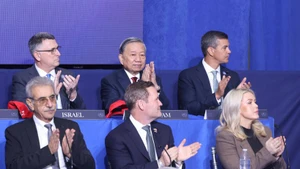
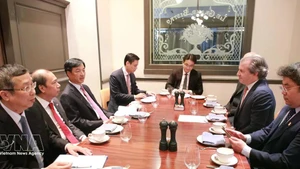
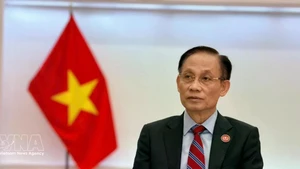
![[In pictures] Party General Secretary To Lam meets US President Donald Trump](https://en-cdn.nhandan.vn/images/dcd63867a0eed4c7753eb4bfb346593abc1ce710dfab8ad1b9aebd75ea6bf930b2ea13e4664779d689ba40aadd80f76d5d05d1208720fd7b0d811ace3a3297321c78cf738400e136e3f2d8790b24d43646e46edbe19517144a88f6ffb0d528f153574a7109328cc0949e4a4c16433c2ff751541639eefe4490518227264cbf8e/vna-potal-tong-bi-thu-to-lam-gap-tong-thong-hoa-ky-donald-trump-8599945.jpg.webp)
